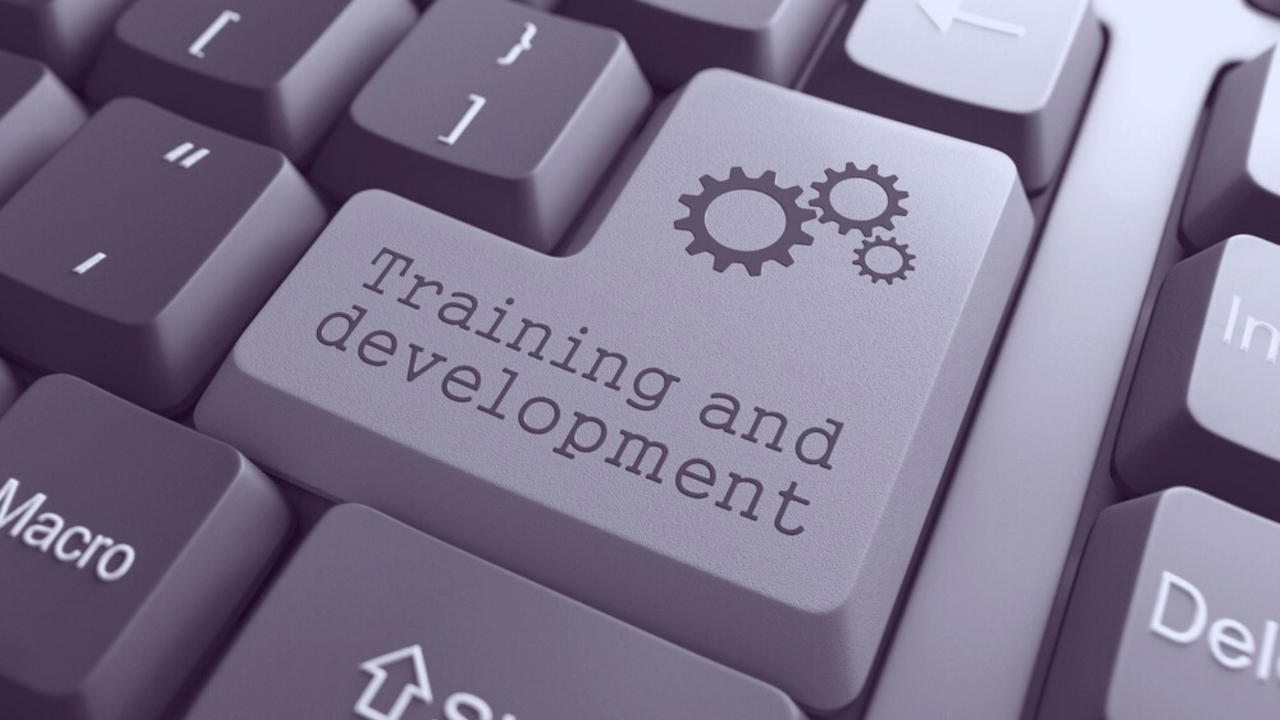Practical Tips. Useful Advice.
Sign-up to be the first to receive notification of new posts!
Harnessing the Power of Neuro Presence to Elevate Your Leadership

In this dynamic world of business and entrepreneurship, standing out not just as a leader but as an unequivocal expert in your field is not just advantageous; it's absolutely essential. This journey, however, is fraught with psychological hurdles like imposter syndrome and tall poppy syndrome, which can cloud your self-perception and dampen your visibility efforts. And it's further complicated by our social norms, our cultural capital, our ways of thinking, our external behaviours.
We, as humans, are complex. And telling someone to 'just be confident' is much more complicated than doing a few power poses before that important meeting (although we are huge advocates of doing that as a starting point!).
So, what is a person to do?
Enter the realm of Neuro Presence—a transformative approach that leverages the intricacies of brain science to enhance your presentation skills, leadership presence, and ultimately, your professional visibility.
Understanding Neuro Presence
What...
Reinventing Yourself: Elevating Your Career or Business

Why Is Reinventing Yourself Urgent?
The world is constantly changing, and so are we as individuals.
We either grow or we hamster wheel our way through day after day...after day.
If we remain static, we fall behind.
This is especially true for professionals and businesses. If you've been at the same job or business for more than 5 years without evolving or changing, you're not living up to your full potential. You're not tapping into your creativity, innovation, and passion. You're not serving your clients, customers, or colleagues in the best way possible. You're not fulfilling the purpose of your work and life.
Reinventing yourself is urgent because it's the only way to stay relevant, competitive, and fulfilled.
What Does it Mean to be Fully Aligned?
Reinventing yourself is not about becoming someone you're not. It's about taking that suit of armour off and showing up with a calm mind.
It's about bringing all aspects of yourself into alignment.
What does that mean?
It means that...
Persuasive Presentations: The Power of Verity, Perspicacity, and Simplicity

Effective communication is an essential leadership skill.
Whether you are pitching an idea, seeking investment, being interviewed, or trying to sway your team or students to take action, the ability to deliver a persuasive presentation is critical to achieving your objectives. In this article, we explore three key elements that can significantly enhance the impact of your presentations and leadership communication: Verity, Perspicacity, and Simplicity.
Verity: Honesty and Authenticity
Verity, often defined as truthfulness or sincerity, lies at the core of persuasive presentations. In a world where information flows rapidly and skeptics and falsehoods abound, being genuine and honest can set you apart from the crowd with a refreshingly human approach. Here are some key aspects of Verity in your communications, including formal presentations:
a) Knowing Your Stuff: Being well-prepared instills confidence in your audience. Research thoroughly, understand the...
Creating an Online Course? Here's What you Need to Know - Part III

Part III - Production
In this third installment of our Creating an Online Course series, we’re going to be chatting all about the best practices for producing your content and then in Part IV, we will discuss how to incorporate beta testing models to ensure your course runs smoothly when it’s time to launch!
If you haven’t yet read Part I and Part II of this series, we highly recommend going back and getting those under your belt first so the tips and tricks we chat about in this article make more sense.
Let’s hop right in!
So now that you’ve put all of the content together in a manner that flows properly and meets your learning outcomes, it is time to film, record, and edit your online course.
For many, this is the most intimidating phase of online course development. Depending on the nature of your course, this may include getting in front of the camera, which can be daunting for many.
Before we get to filming though, let’s...
Creating an Online Course? Here’s What You Need to Know!

Part I - Planning & Development
The Boom of Online Learning
As we all know, the last 2+ years have brought about many changes (read challenges) when it comes to how we do business and more specifically, how we train and learn. That said, it has also offered a number of growth opportunities in areas where it previously didn’t seem plausible. While that doesn’t make the hardships of the last few years disappear (far from it), it does open up some thought for where we can go from here, especially when it comes to online education and training.
While the pandemic certainly skyrocketed the boom-like growth within online learning, virtual events and the overall enhancement of virtual facilitation, the online education industry was actually already experiencing significant growth and adoption in the years leading up to it.
As a result, learning and streaming platforms come to the plate in a big way, as you can see in the graphs below that demonstrate the...
The Importance of Feedback

The Importance of Feedback
When we’re learning a new skill or enhancing existing skill sets, one of the most important parts of that learning curve is feedback. Honest feedback helps individuals to learn and grow in a fashion that is supportive and appreciative. For many, feedback serves as an important motivator for growth and expansion, allowing the recipient to gain real-time constructive points to help improve their performance.
Understanding how we are perceived by others is paramount when learning a new skill, especially one in the field of communication.
The best feedback takes place when the provider is actively listening, analyzing and offering the best solutions for improved performance. Improved focus typically leads to improved results, making feedback an essential mechanism to effective public speaking.
The benefits of offering constructive feedback
At shiftED, we know that offering constructive and positive feedback is the cornerstone to...
Is Futurism the Next Step for Subject Matter Experts?

Do you find yourself asking how to create agency for the future?
Do you struggle with how to best utilize the wealth of knowledge that you have dedicated your career to building?
Do you frequently ponder the future of your industry? Your career? Your business?
If you answered yes to any of these questions, you’re not alone.
In fact, these questions are becoming more and more common in our chats with colleagues, students, and leaders alike, and are being asked of educators and thought leaders globally. Given the leveling of the virtual playing field over the last few years, the future of learning is in flux. Not only has the playing field shifted, the players have too, so what does that mean for you, as a Subject Matter Expert (SME) and your legacy of knowledge?
The people you’ve worked with, the problems you’ve solved, and the success you have cultivated all have a place within your knowledge legacy. We talk a lot about cultivating that...
7 Tactics to Building Audience Engagement into your Online Presentation

If you’ve worked with us in the past, you’ve likely heard us mention the WOSLIE Way. If you haven’t, you’re probably wondering what it is.
WOSLIE is an acronym for six critical strategies for activating audience engagement during your presentations - whether they are online, in person, or a hybrid of both. While shiftED formulated the strategies, it is up to the presenter to determine how best to implement them, based on their audience, their content, their comfort and experience level, and other important factors. After we introduce these principles during our workshops and courses, we discuss practical applications for incorporating them based on specific participant scenarios. We believe there is no ‘one-size-fits-all’ approach to presenting, and take a heuristic view with our training and coaching. Because most of our workshop and 1:1 coaching clients have been primarily online for the past two years, the conversations have been dominated by...
7 Misconceptions about Online Presenting

The virtual learning industry is on a variable upswing. This isn’t surprising given the push to make everything more accessible as we face year three of this global pandemic. Everything from youth dance classes to group support programs have migrated to the virtual landscape and it has created a much more level playing field for virtual learning and professional expansion.
With increasingly user-friendly platforms, minimal tech setups and a much more educated and accessible audience, the move to online course creation is a buzz with activity. We have noticed this trend making waves with our senior executives as they look for ways to expand their offerings or round out their careers with a legacy-inducing bang.
However, with development and expansion also comes doubt and trepidation. We often hear from our participants that moving into the virtual learning space is intimidating and seems unrealistic, but that’s simply not true. That’s why...
New Year, New You?

This trope has likely come up in subject lines and web searches time and time again over the last few weeks urging you to become a better version of yourself now that we’ve approached a new year.
This never really made sense to us, because, often at the beginning of a new year we’re recovering from a busy holiday season, the days are short, and, honestly, our capacity for change is minimal. That’s why we don’t typically recommend resolutions and heavy goal setting first thing. However, that doesn’t mean that you shouldn’t be thinking about the year ahead and how you might want to maximize it.
More and more, as we chat with Subject Matter Experts (SMEs) who are tired of the status quo, we have realized that they’re looking for more, but just aren’t sure how to get there. If 2022 has presented you with this unique challenge and it feels scary and uncomfortable, yet oddly exciting, then you’re likely on the right...


